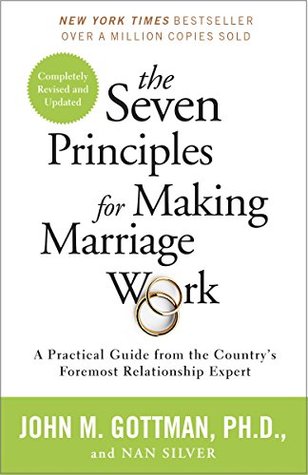More on this book
Community
Kindle Notes & Highlights
Read between
August 17 - September 5, 2023
Strengthening your marital friendship isn’t as basic as just being “nice.”
Two very common forms of criticism are statements that contain “you always” or “you never.”
Usually people stonewall as a protection against feeling psychologically and physically overwhelmed, a sensation we call flooding.
A marriage’s meltdown can be predicted, then, by habitual harsh start-up and frequent flooding brought on by the relentless presence of the four horsemen during disagreements.
Since marital confrontation that activates vigilance takes a greater physical toll on the male, it’s no surprise that men are more likely than women to attempt to avoid it.
If a marriage follows this common pattern, it doesn’t mean the couple are headed for divorce. In fact, you’ll find examples of all the horsemen and even occasional flooding in some stable marriages.
Even a marriage that is about to hit bottom can be revived with the right intervention.
Too often when a new baby comes, the husband gets left behind.
Although power-mongering is more common in husbands, there are wives who have just as hard a time acceding to their spouse’s wishes,
A boy’s experience at playing cooperatively and quickly getting past conflict will be an asset later in the boardroom or on the construction site, but it will be a liability in marriage if it comes at the expense of understanding the emotions behind his wife’s perspectives.
Marriages are successful to the degree that the problems you choose are ones you can cope with.
Avoiding conflict over a perpetual problem leads to emotional disengagement.
For many men, hearing their wife acknowledge a shared responsibility is like manna from heaven and prevents tensions from escalating.
Don’t expect your partner to be a mind reader.
Be polite.
The first step in dealing with flooding is to end the discussion. Now.
To me, a messy home means comfort and freedom from criticism.
When the house is a mess, it takes me back to the chaos of my youth.
It is a sad fact that less than a third of U.S. families eat dinner together regularly, and more than half of those that do have the television on. This effectively ends conversation during dinner.


